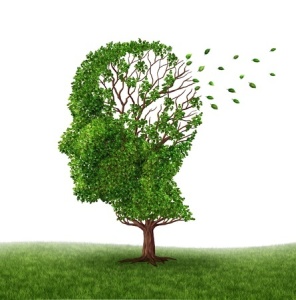Things are different today. Grandmother needs something to calm down. Although she’s not really ill, they’ll give her a little yellow pill. And it helps her on her way, and gets her through the day. So she goes running for the shelter of a mother’s little helper. Four will help her sleep right through the night; and might even help to minimize her plight.
“Doctor please, some more of these
Outside the door, she took four more
What a drag it is getting old.”
Above and below are the chorus and two paraphrases taken from the lyrics of the Rolling Stones 1966 song, “Mother’s Little Helper.” Following the runaway success of the first modern tranquilizer, Miltown, Hoffman-La Roche brought the newest benzodiazepine—Valium to market in 1963 and then targeted women in its advertising. “From 1968 to 1981, it was the best selling drug in the Western world.”
Recently there has been a good bit of press (Science Daily and Web MD and others) on a study published in the British Medical Journal that indicated benzodiazepine (benzo) use was associated with the risk of developing Alzheimer’s disease. A BBC report about the study quoted some Alzheimer’s experts who minimized the study’s findings by saying that it was hard to know the underlying reason for the link. Other reports, such as that by Paula Span, on her New York Times blog, The New Old Age, noted how the study was designed to reduce the possibility of reverse causation. That is, reverse causation claims the correlation existed because individuals first diagnosed with Alzheimer’s were given benzos afterwards as part of their medical treatment.
Mad in America quoted from the study’s abstract, where the researchers said: “the stronger association [between Alzheimer’s and the use of benzos] observed for long term exposures reinforces the suspicion of a possible association.” The study’s authors further said:
Risk increased with density of exposure and when long acting benzodiazepines were used. Further adjustment on symptoms thought to be potential prodromes [precursors] for dementia—such as depression, anxiety, or sleep disorders—did not meaningfully alter the results.
The results of the study were consistent with five previous studies. It reinforced the suspicion of an increased risk of Alzheimer-like dementia among benzo users, particularly those who are long-term users. Their findings are particularly important when considering the wide spread use of benzos with older people, and the concurrent rise of dementia in developed countries. “Unwarranted long term use of these drugs should be considered as a public health concern.”
A JAMA Internal Medicine article noted that: “The American Board of Internal Medicine Foundation Choosing Wisely Campaign recommends against the use of benzodiazepine drugs for adults 65 years and older.” Paula Span reported in another article that a particular concern with older adults is falls, which are a leading cause of death and disability. The CDC estimated that one out of three older adults over the age of 65 falls each year. “In 2012, 2.4 million falls among older adults were treated in emergency departments and more than 722,000 of these were hospitalized.” Advice for tapering older adults off of benzos and other sleep aids like Ambien is available. See the Paula Span article, “More on Sleeping Pills and Older Adults,” linked in this paragraph.
Not only are benzos problematic when given to older adults long-term, there is a well-documented concern with any long-term use of this class of drugs. Quoting Dr. Stevan Gressitt, Robert Whitaker indicated in Anatomy of an Epidemic that there was no evidence supporting the long-term use of benzos. Additionally, they could aggravate medical and mental health problems like anxiety, depression, cognitive impairment and functional decline.
Whitaker described a 2004 Australian study that looked at the potential deficits in cognitive functioning after long-term benzo use. The duration of benzo use by the patients in the research studies they looked at ranged from 1 to 34 years. The mean was 9.9 years. They found that long-term benzo users were consistently more impaired across all the cognitive categories examined. “The observation that long-term benzodiazepine use leads to a generalised effect on cognition has numerous implications for the informed and responsible prescription of these drugs.”
Although it was thirty years ago that governmental review panels in the United States and the United Kingdom concluded that the benzodiazepines shouldn’t be prescribed long-term, with dozens of studies subsequently confirming the wisdom of that advice, the prescribing of benzodiazepines for continual use goes on. Indeed, a 2005 study of anxious patients in the New England area found that more than half regularly took a benzodiazepine, and many bipolar patients now take a benzodiazepine as part of a drug cocktail. The scientific evidence just doesn’t seem to affect the prescribing habits of many doctors.” (Robert Whitaker, Anatomy of an Epidemic, p. 147)
“Life’s just much too hard today,”
I hear every grandmother say.
The pursuit of happiness just seems a bore
And if you take more of those, you will get an overdose.
No more running for the shelter of a grandmother’s little helper.
They just helped you on your way, towards your busy dying day.

